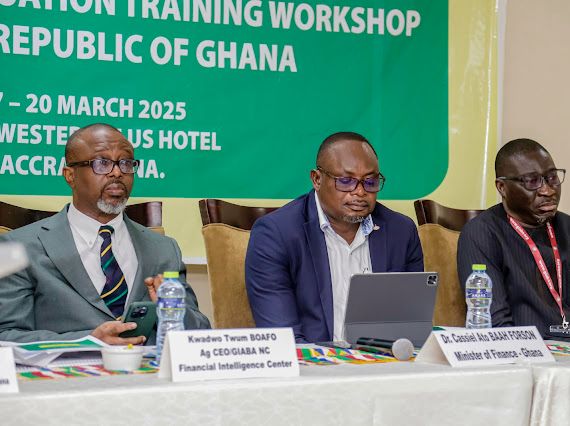The Intergovernmental Action Group against Money Laundering in West Africa (GIABA) has commended its member states, including Ghana, for their significant progress in combating money laundering and terrorist financing.
Edwin W. HARRIS Jr, Director General of GIABA, highlighted the strides made by the region in strengthening its anti-money laundering (AML) and combating the financing of terrorism (CFT) regimes. He cited Ghana’s removal from the Financial Action Task Force (FATF) grey list in June 2021 as a clear indication of the country’s commitment to tackling financial crimes.
"Ghana's removal from the Financial Action Task Force (FATF) grey list in June 2021 is a testament to the country's commitment to AML/CFT," he stated. "We are encouraged by the progress made by our member states and will continue to support them in their efforts to combat financial crimes."
He stressed that money laundering and terrorist financing pose significant threats to West Africa’s economic stability and security but expressed confidence in the region’s ability to overcome these challenges through collective action and cooperation.
Speaking to journalists at the 3rd Pre-Mutual Evaluation Training Workshop for the Republic of Ghana, Edwin W. HARRIS Jr reaffirmed the importance of vigilance in protecting the financial system. The four-day workshop, which began on Monday, 17th March 2025, has brought together stakeholders from various sectors including financial institutions, law enforcement agencies, and regulatory bodies, to strengthen Ghana’s AML/CFT framework.
He emphasized the need for increased prosecution, conviction, and deterrence to curb transnational crimes. He urged all stakeholders to remain steadfast in their commitment to ensuring a robust financial system.
Kwadwo Twum Boafo, Acting CEO of the Financial Intelligence Centre (FIC) and GIABA National Correspondent for Ghana, underscored the importance of tackling money laundering in the country. He reaffirmed Ghana’s proactive approach to addressing financial crimes.
"Money laundering poses a significant threat to any country's economy," he noted. "As a region, West Africa is vulnerable, and Ghana is no exception. We are working closely with GIABA to ensure our financial sector is transparent and compliant with international standards."
He added that Ghana’s third mutual assessment, currently in progress, will help identify areas for improvement. "We are doing our best to ensure that Ghana remains on the right path and that we stay ahead of criminals who seek to launder money," he assured. "Failure is not an option for us, and we are working tirelessly to prevent any untoward incidents."
Abdulai Bashiru Dapiah Esq, Executive Director of the Economic and Organized Crime Office (EOCO), highlighted the need for collaboration in fighting money laundering, describing it as a complex and evolving crime that demands a united front.
"Money laundering is not a new concept, but rather a process that has evolved over time," he explained. "It involves the concealment of illicit funds to make them appear legitimate. Tax fraud, failure to report income, and the use of illegal funds for business or investment purposes are all activities that constitute money laundering."
He called for coordinated efforts among regulatory bodies, financial institutions, and law enforcement agencies to dismantle illicit financial networks and maintain financial stability in the region.


